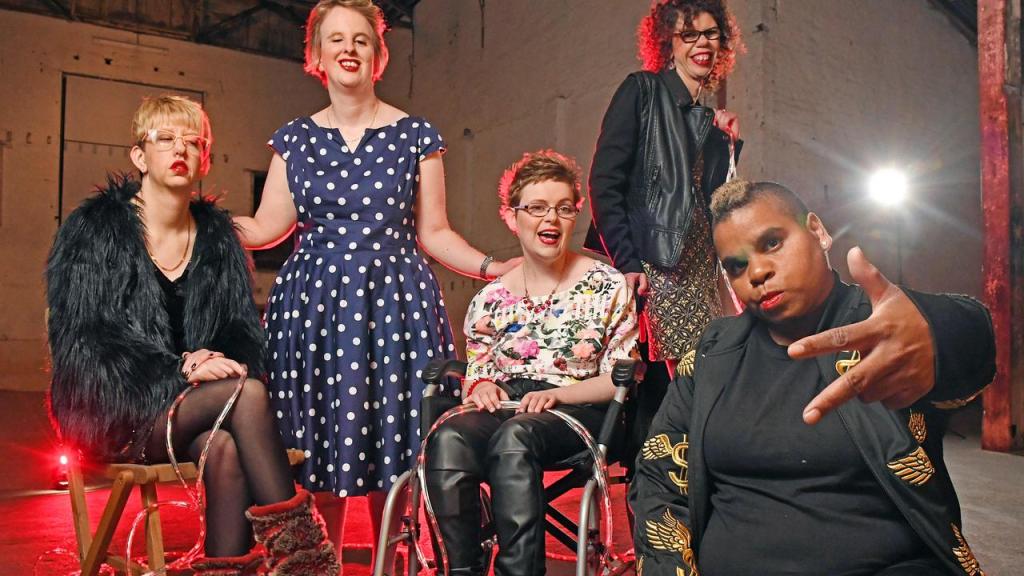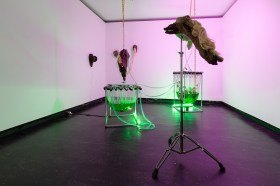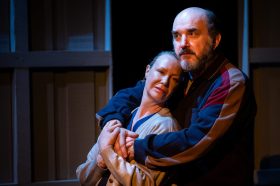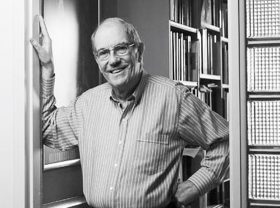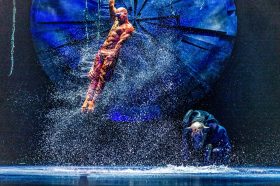When trying to make a change or find a solution, the general advice is to ‘think outside the box’.
I say it’s time to get rid of the box completely.
A box is stifling and restrictive. Even as you look outside for an answer, it’s still there, ready to contain you.
Consciously or not, people tend to place disability arts in a box.
They might open that box for a day or two and take in a single performance or attend a disability arts event but when it’s over, we’re packed back in the box and put away for another year.
Disability arts should be seen on a platform, not a box.
A platform elevates artists and artworks. It’s visible and it can’t be packed away.
A platform provides a legacy for disability-led works, a clear path for artist development and career progression, greater audience engagement and abundant opportunities for the wider arts sector.
To start building that platform, we need to first challenge the idea of artistic excellence, that what d/Deaf and disabled artists do ‘isn’t good enough’ compared to non-disabled, hearing artists.
We need to address the unconscious ableism that has people believing those with disability are somehow less than: less worthy, less talented, less professional.
While most people may not actively think that to be true, this internalised ableism is deeply rooted in our brains because it’s what society has conditioned us over centuries to believe. That we’re not good enough. But we are.
It’s hard to recognise the many different, powerful and wonderful layers of artistic excellence when we are overwhelmingly presented with non-disabled people on stage and in the spotlight.
We need to address the unconscious ableism that has people believing those with disability are somehow less than: less worthy, less talented, less professional.
Madeleine Little
There’s a saying I keep coming back to: nothing about us without us.
There’s no reason why disabled creatives shouldn’t be involved in artworks telling disabled stories.
The plays Cosi or The Glass Menagerie often find their way into mainstage programming but how many disabled creatives are hired? How many are paid?
Representation on stage is crucial to building a strong and enduring platform for disability arts but so too is a commitment to integrating accessibility into what we do. Ideally, from the very beginning of the creative process.
The term ‘the aesthetics of access’ refers to the considered integration of accessibility into a creative work so it matches a production’s aesthetic like it is truly meant to be there, rather than added as an afterthought.
By integrating Auslan into a dance, music or theatre piece from its conception, the audience will enjoy a more seamless experience and a more powerful narrative.
Another example is including captions in a production’s audio-visual design for d/Deaf patrons who don’t use Auslan.
Yet another is planning and adapting a relaxed performance mode.
There are a lot of performances staged with big lights, loud music and even elements of invasive interaction.
Relaxed performances pare these back to make a show accessible to Autistic people and people with sensory sensitivities.
Disability-led planning at the beginning of the creative process can prove life-changing for d/Deaf and disabled audience members and perspective-shifting and eye-opening for the arts sector.
More people will actually see a work if it’s more accessible and who doesn’t want to welcome new audiences?
Representation on stage is crucial to building a strong and enduring platform for disability arts but so too is a commitment to integrating accessibility into what we do. Ideally, from the very beginning of the creative process.
I hope that one day, all creatives challenge themselves to integrate accessibility into their work.
Building a strong platform also means championing d/Deaf and disabled creatives to produce and perform in high-quality work that infiltrates the mainstream.
The Undercover Artist Festival’s mission is to bend the rules, push artistic boundaries and entertain audiences in a way they didn’t know was possible.
All programmed work is disability-led to ensure artists’ stories and voices are represented with the most authenticity and truth possible.
The Festival’s role is to put that work front and centre, to show these stories on a main stage and to draw attention to work that needs to be seen by a mainstream audience.
Our goal is for people to see d/Deaf and disabled artists owning our work, our stories and our processes; be entertained; and have their unconscious ableism and preconceptions of excellence challenged and changed.
A platform also repositions how d/Deaf and disabled artists are viewed by the public.
Typically, when people think of artists with disability, they think of community theatre or arts-as-therapy-based models.
But being platformed as professional headline artists signals a huge shift in perspective, increased career opportunities and more creative influence.
The confidence that comes from headlining a production or from being a professional artist feeds creativity and feeds a higher quality work, now and in the future.
Being seen and valued for all we have to offer and accepted as a professional is a life-changing moment for any artist.
It signals that we produce work with merit, appeal and a lasting impact.
It empowers us to create a pivotal moment within the arts sector that embraces diversity, fully and completely.
It places us firmly on a platform, where we present something that can’t be packed away.
